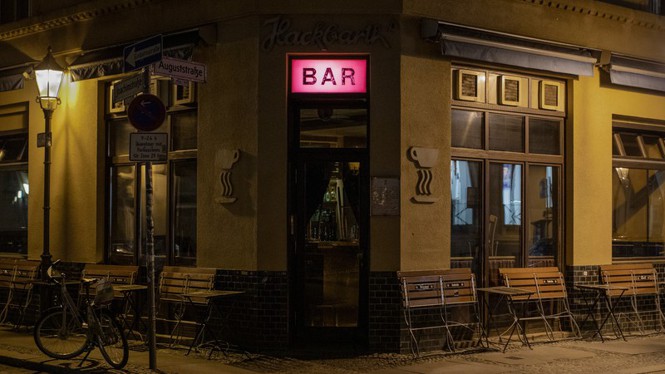When a Friendship Changes Forever
Lauren Groff captures the precise moment when someone realizes their memories are theirs alone.

This is an edition of the Books Briefing, our editors’ weekly guide to the best in books. Sign up for it here.
In her new short story, “The Ghosts of Wannsee,” the author Lauren Groff captures the precise moment when a friendship changes forever. “Wannsee” follows two friends from high school who reunite one afternoon after many years apart; the encounter alters their understanding of each other in ways that neither anticipated. Groff’s narrator remembers her old friend Leslie as a childhood crush—and she remembers his father, who abused him and belittled her. But Leslie, now the partner of a wildly successful designer, is not eager to summon old ghosts from his past. When the narrator meets up with him on a brief layover in Berlin, she realizes that the person standing in front of her is no longer her Leslie: “Oh, I thought, how strange to see people whom you’ve loved for so long,” Groff writes. “You don’t really see their current face; instead, you see the faces of your greatest intensity of love.”
Groff’s most recent novel, The Vaster Wilds, which the Atlantic contributor Judith Shulevitz likened to a “pilgrimage,” followed a solitary young girl running through the wilderness on foot in 17th-century America. The narrator in “Wannsee” takes a cab through contemporary Berlin, surrounded by people, museums, and bars. The two settings couldn’t be more different, but Groff’s novel and her short story share an interest in the revelations and limitations of a single point of view. In “Wannsee,” the narrator is caught off guard by Leslie’s anger at her attempts at sympathy. Groff taps into the deeply unsettling reality that, no matter what experiences we share, the memories we have are shaped by our perspectives, and are ours alone.

The Ghosts of Wannsee
By Lauren Groff
In Berlin, the winter sky is screwed on so tight that all the world beneath becomes dark and gray and grim. On my runs around Wannsee, from the corner of my eye, I could glimpse the furious ghosts of the place seething in the middle of the lake, transforming into whitecaps if I looked at them directly. Around some bends, I’d come across naked old men, bright red with the cold of their swim, vigorously toweling off their withered loins. When I’d come to the ferry launch to Pfaueninsel, the peacocks across the spit of water would cry out so loudly in their winter rutting, I could easily imagine that the island was entirely made of peacocks, in layers four thick upon the ground, that the castle there was wrapped in a hissing sheet of iridescent blue, the million eyes of Argos on their tail feathers staring up, affronted by the low gray clouds.
When you buy a book using a link in this newsletter, we receive a commission. Thank you for supporting The Atlantic.
Sign up for The Wonder Reader, a Saturday newsletter in which our editors recommend stories to spark your curiosity and fill you with delight.
Explore all of our newsletters.
What's Your Reaction?




















